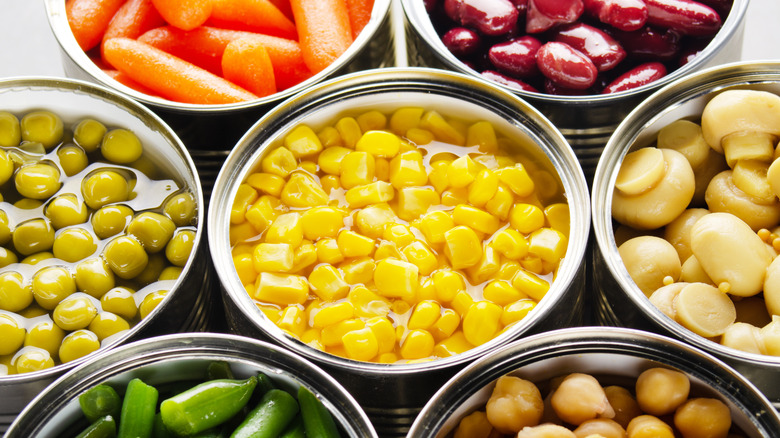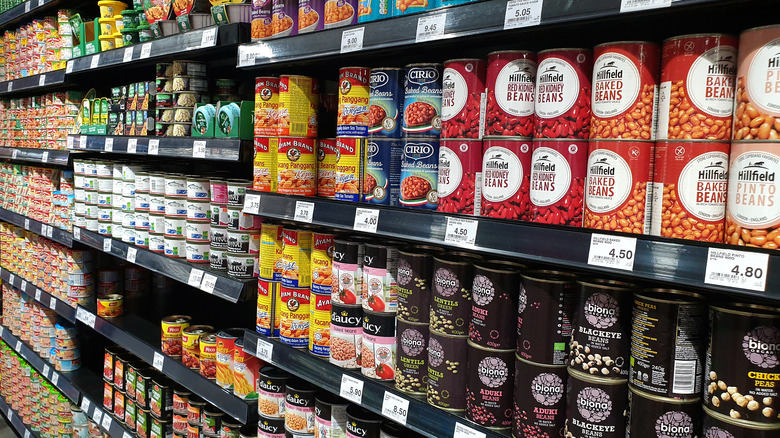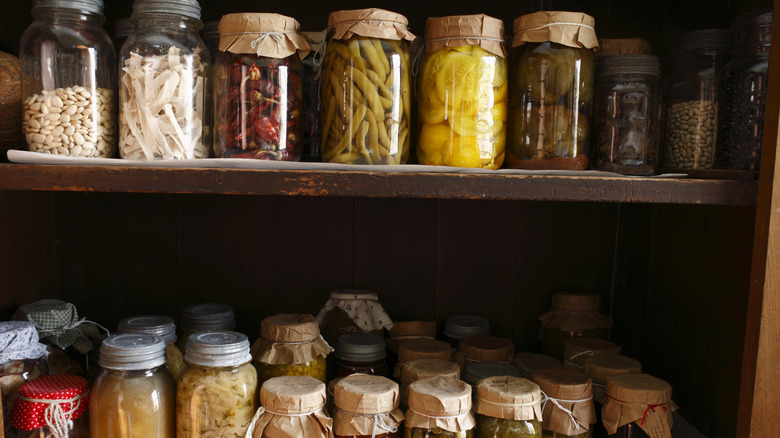How Long Unopened Canned Veggies Will Last Past Their Expiration Date
Canning is a simple, convenient way to store fruits, veggies, and other perishable foods. It also allows you to enjoy seasonal produce year-round, resulting in a more varied diet. The best part is, unopened canned vegetables have a long shelf life and can last for years. In the early 1970s, scientists recovered several cans of veggies, oysters, and other foods from a sunken ship. To their surprise, the food was safe to eat and had no signs of microbial growth despite being over 100 years old. Most products were lower in vitamins A and C than normal but still contained high amounts of protein and calcium.
We can't say the same about fresh veggies, which can go bad in as little as one day. For example, raw corn will stay fresh in the fridge for just one or two days. By comparison, unopened canned corn will last for up to five years or longer and can be stored at room temperature.
While it's true that canned goods can break down the can itself, that's mostly the case with highly acidic foods, such as pickles and jams. Canned vegetables are usually safe to eat well past their expiration date and have low acidity.
Unopened canned veggies can last for years if stored in proper conditions
Many people turn to canned food to cut costs. After all, it's cheaper to stock up on canned tuna, corned beef, asparagus, or green beans than to buy them fresh. This is particularly true for seasonal vegetables and those imported from other countries. But what should you do if you find an old can of beans in your pantry? Should you eat it and ignore the expiration date or throw it away?
According to the U.S. Department of Agriculture (USDA), "use by" and "best before" dates refer to "quality, not safety." With a few exceptions, shelf-stable foods — including canned veggies — are safe for consumption past the "sell-by" date. However, those with a "use-by" label may experience changes in their flavor, color, or texture after that date. The USDA recommends checking the can for rust, deep dents, and other signs of damage, as these may increase the risk of bacterial contamination.
Overall, canned vegetables will last for many years as long as the packaging is intact. Except for acidic veggies like rhubarb and sauerkraut, they're safe to eat for two to three years after expiration. For example, canned beans, corn, peas, spinach, stews, and other low-acid foods will last up to five years from the date of purchase. Highly-acidic vegetables have a shelf-life of 18 months, whereas home-canned foods will last for up to a year.
How to store canned vegetables to preserve their quality
Proper storage is essential for maintaining the quality of canned vegetables. Ideally, keep them in a cool, dry place at temperatures below 85 degrees Fahrenheit. Place the cans away from heat and moisture, and discard them if you notice any leaks, cracks, or bulges. Some people prefer to refrigerate canned foods, but that's not really necessary. However, you should transfer the food to a glass jar or airtight container after opening the can, and then refrigerate or freeze it.
Sometimes, canned veggies past their expiration date develop an off-flavor, even if they're perfectly safe. Luckily, there's a simple way to revive soggy canned vegetables and make them more palatable. Try seasoning them with curry, garlic powder, and other spices, then roasting them in the oven for about 20 minutes. You can also blanch the vegetables before cooking to get rid of that "canned" taste.
Note that home-canned vegetables spoil faster than their commercial counterparts. To stay safe, store them in glass jars and label them with the date they were prepared. Place the sealed jars in your pantry or any cool, dry place at 50 to 70 degrees Fahrenheit. After opening the jar, discard its contents if you notice any foul odors, rising air bubbles, unusual colors, or mold. In some cases, the food may be contaminated with C. botulinum bacteria or other toxins, and you should discard the jars, too.


